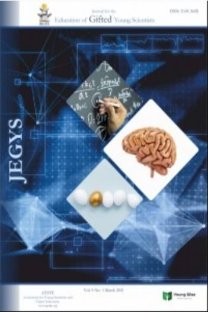Usage of ICT by Science Teachers in Underdeveloped Regions: Accessibility, Competency and Attitude
ICT learning, Science teacher, learning process,
___
- Albirini, A. (2006). Teachers’ attitudes toward information and communication technologies: the case of Syrian EFL teachers. Computers & Education, 47(4), 373–398. DOI:10.1016/j.compedu.2004.10.013
- Chigona, A., Chigona, W., Kausa, M., & Kayongo, P. (2010). An empirical survey on the domestication of ICT in schools in disadvantaged communities in South Africa. International Journal of Education and Development Using ICT, 6(2), 21-32.
- Chisango, G. & Lesame, C., 2019. Exploring accessibility to information and communication technology (ICT) at disadvantaged secondary schools in Gauteng province- South Africa. edulearn 19 Proceedings. Available at: http://dx.doi.org/10.21125/edulearn.2019.0178.
- Cox, M. J., Cox, K., & Preston, C. (2000). What factors support or prevent teachers from using ICT in their classrooms?.
- Ghavifekr, S., & Rosdy, W. A. W. (2015). Teaching and learning with technology: effectiveness of ICT integration in schools. International Journal of Research in Education and Science, 1(2), 175. DOI:10.21890/ijres.23596
- Hoogerheide, V., van Wermeskerken, M., Loyens, S. M. M., & van Gog, T. (2016). Learning from video modelling examples: Content kept equal, adults are more effective models than peers. Learning and Instruction, 44, 22–30. DOI:10.1016/j.learninstruc.2016.02.004
- Indonesia, D.P.R.R., Undang-Undang Tentang Guru dan Dosen, D. Dikti, Editor. 2005: Jakarta.
- Judi, H. M., Mohamed, H., & Noor, S. F. M. (2016). A perceived attitude of teachers in rural areas towards information and communication technology. Social Sciences (Pakistan), 11(23), 5590-5596.
- Kaur, P., & Arya, D. S. (2019). Attitude towards information and communication technology among rural and urban primary and secondary school teachers of Punjab. International Journal of Trend in Scientific Research and Development, 3(3), 859–864. DOI:10.31142/ijtsrd23131
- Khenissi, M. A., Essalmi, F., Jemni, M., Kinshuk, Graf, S., & Chen, N.-S. (2016). Relationship between learning styles and genres of games. Computers & Education, 101, 1–14. DOI:10.1016/j.compedu.2016.05.005
- Wainer, J., Vieira, P., & Melguizo, T. (2015). The association between having access to computers and Internet and educational achievement for primary students in Brazil. Computers & Education, 80, 68–76. DOI:10.1016/j.compedu.2014.08.007
- Yang, H. H., Zhu, S., & MacLeod, J. (2018). Promoting education equity in rural and underdeveloped areas: cases on computer-supported collaborative teaching in china. Eurasia Journal of Mathematics, Science and Technology Education, 14(6), 2393–2405. DOI:10.29333/ejmste/89841
- Yang, J. C., Quadir, B., Chen, N.-S., & Miao, Q. (2016). Effects of online presence on learning performance in a blog-based online course. The Internet and Higher Education, 30, 11–20. DOI:10.1016/j.iheduc.2016.04.002
- Başlangıç: 2013
- Yayıncı: Genç Bilge Yayıncılık
Wuttikorn İNJANA, Ratchadakorn Phonpakdee, Pakkapong POUNGSUK, Sirirat PETSANGSRİ
Chokchai YUENYONG, Warangkana THONGNOPPAKUN
Rosdiana ROSDİANA, İ Ketut BUDAYASA, Agung LUKİTO
Oranit CHOKCHAİ, Paitoon PİMDEE
Ridhwan RİDHWAN, Sumarmi SUMARMİ, İ Nyoman RUJA, Dwiyono Hari UTOMO, Rima SARİ
